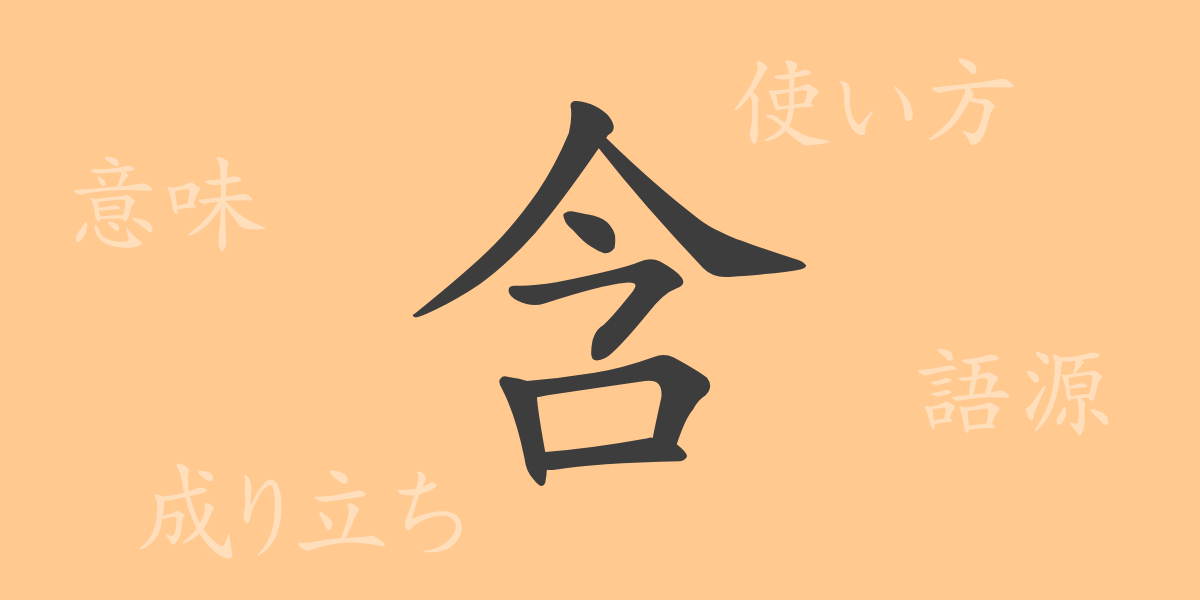Rooted deeply in Japanese culture, the Joyo Kanji (常用漢字(Jouyou Kanji)) enable beautiful expressions. Among them, the character “含” (Fukumu) is essential in conveying rich emotions and subtle nuances. This article explores the charm of the kanji “含”, from its origins to its modern usage, pronunciation, and idiomatic expressions in detail.
The Origin of 含 (Etymology)
The kanji “含” combines the “mouth” radical “口” (Kuchi) with “今” (Ima), which depicts a person crouching. This composition suggests the state of having something in one’s mouth, giving rise to meanings such as to hold in the mouth or to harbor in the heart.
The Meaning and Usage of 含
“含” has a wide range of uses, from the literal meaning of “to hold in the mouth” to metaphorical concepts like “implication” and “connotation”. It is also used in abstract expressions, such as harboring emotions or thoughts. Additionally, it is characteristic of poetry and prose to employ this kanji when conveying deeper meanings.
How to Read 含, Stroke Count, and Radical
Understanding the pronunciation and structure of the kanji “含”, which is frequently used in daily life, is important.
- Pronunciation: The onyomi (Chinese reading) is “Gan” , while the kunyomi (Japanese reading) is “Fuku-mu” , “Fuku-meru”.
- Stroke Count: It has a total of 7 strokes.
- Radical: The “mouth” radical “口” is the radical, also known as “Kuchihen” .
Idioms, Phrases, and Proverbs Using 含 and Their Meanings
Idioms, phrases, and proverbs that use “含” reflect the depth of the Japanese language. Here are some examples, along with their meanings.
- 含羞 (Ganshuu): The state of being shy or bashful.
- 含蓄 (Ganchiku): The deep meaning or value contained in words.
- 含意 (Gan’i): The hidden meaning behind words or actions.
- 含笑 (Ganshou): A facial expression that includes a smile.
- 含嗽 (Gansou): The act of holding water or medicinal liquid in the mouth for gargling.
- 含み笑い(Huku-m-iwara-i): Smiling while suggesting something unsaid with one’s expression.
- 笑う門には福来る(Wara-u-kado-niha-hukukita-ru): A proverb meaning happiness comes to a cheerful and joyful household. While it does not use “含” directly, the word “笑う” (Warau) can be said to include the nuance of a knowing smile.
Conclusion on 含
The meanings imbued in a single kanji character can expand infinitely depending on how it is used. “含” is one such example, enriching our language with depth and richness. From everyday communication to literary works, please use the potential of this kanji to express emotions and thoughts.

























